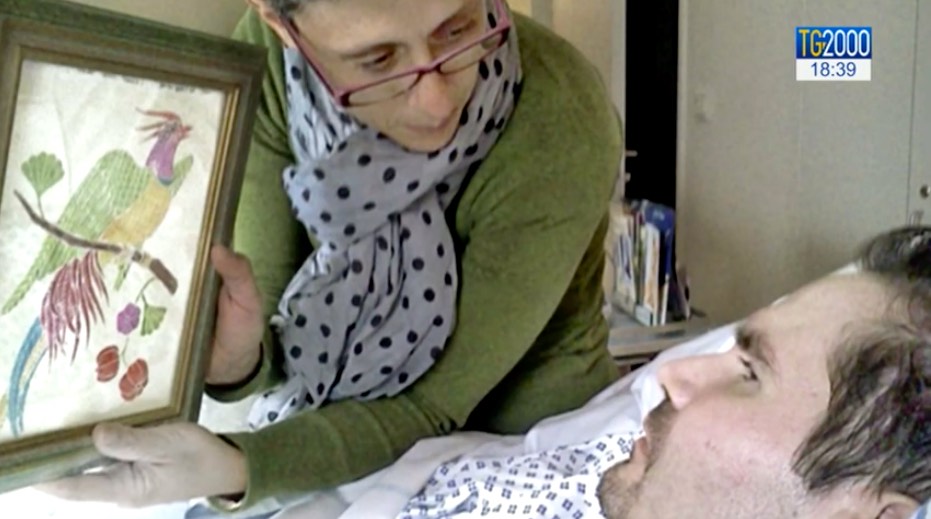(LifeSiteNews) – A court has absolved a physician of any wrongdoing in the deliberate death of disabled Frenchman Vincent Lambert, who died after being denied food and water.
In Reims, a French court absolved a doctor on Tuesday in the death of Lambert, 42, after ceasing to provide basic nutrition and hydration for his patient, who had long convalesced after a serious brain injury. Dr. Vincent Sanchez had been sued by Lambert’s parents for “failure to assist a person in danger.”
Lambert died July 11, 2019, nine days after being denied food and water. A tetraplegic, Lambert died at Reims University Hospital as a result of heart failure after his kidneys malfunctioned due to being denied the basic necessities of life.
“It is very likely that we will appeal this decision,” said Jean Paillot, one of the lawyers for parents Viviane and Pierre Lambert, after the hearing. The court ruled that Dr. Sanchez had followed all of the required legal norms in denying care to the patient.
In early 2019, the Lamberts sued Dr. Sanchez, saying they were not seeking revenge but charging that he had crossed a “red line” to bring about their son’s death by denying food and water. They claimed that he had violated his medical oath. Dr. Sanchez is the chief physician at the Reims hospital.
Vincent Lambert was involved in a serious motorcycle accident in 2008, causing extensive brain damage. According to media reports, he was in a persistent vegetative state. His parents argued that, despite his injuries and his condition, he should have been allowed to live and receive treatment. His wife, however, argued that Vincent would not have wanted to continue living in his condition, even though he left no living will. She called for a halt to treatment, as well as nutrition and hydration.
READ: Nurse faces murder charges for ‘assisted suicide’ on friend depressed over break-up
In May 2019, the European Centre for Law and Justice (ECLJ) urged the French government to provide relief for Lambert, arguing that he was “neither at the end of his life nor suffering from a serious, incurable or a degenerative illness.” The statement went on to say that he was “in a state of altered consciousness after a traumatic brain injury. He is not dying and can still live for many years.”
His parents, friends and medical specialists testified, according to the ECLJ, that Lambert was able to breathe unassisted and needed no cardiac assistance. It noted that his emotions were evident on his face, and that a video showed him weeping in the company of his mother.
The Reims court ruled that the cessation of treatment did not affect Lambert’s integrity as the patient because of the severity of his brain injury and his limited responsiveness for the last decade. The court also claimed that his parents had “no other reason than to oppose the Leonetti-Claeys law” regarding the manner of his death.
The Leonetti/Claeys End of Life law went into effect in 2016 and gave certain rights to patients regarding ending their life. It granted a right to let to die and to terminate medical care. However, it did not legalize assisted suicide or active euthanasia. Patients can call for ending life through “deep and continuous sedation until death,” while those who are judged to be suffering from a serious and incurable disease can deny themselves artificial hydration and nutrition.
In cases where the terminally ill patient has lost the capacity to express his will, the law requires physicians to provide continuous deep sedation when denying life sustaining therapy. The continuous sedation utilized by physicians consists of large doses of strong sedatives, such as midazolam, that are administered intravenously until the patient dies. The law also provides for so-called “advance directives,” by which a competent adult can write down his wishes about continued therapy. Lambert did not have an advance directive.
READ: HORROR: Experimental assisted suicide drugs caused patients to ‘scream in pain’
LifeSiteNews correspondent Jeanne Smits wrote extensively about Lambert’s case, which went all the way to the highest court in France last year and the European Court of Human Rights. France ignored a request from the UN Committee for the Rights of Disabled Persons for additional time to examine his case.
Lambert’s family had fought in courts for six years to save his life. Kept under lock and key in hospital, Lambert had limited visits from his parents and siblings, who were kept under strict surveillance. Smits reported that Vincent was denied deep sedation during his final ordeal, despite the directives of the Leonetti/Claeys End-of-Life law. In the days while he suffered hunger and thirst, Lambert cried and moaned, and also showed signs of respiratory distress.
Paillot and attorney Jérôme Triomphe declared that Lambert had been killed “for reasons of State and by a doctor who has forsaken his Hippocratic oath.” Calling for respect for human life, the lawyers said Lambert’s death was a “heinous wrongdoing” and a “State crime” that had shaken the very foundations of law and civilization.
Editor’s Note: This article was originally published at LifeSiteNews and is reprinted here with permission.
“Like” Live Action News on Facebook for more pro-life news and commentary!







